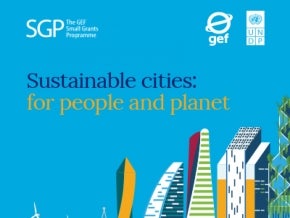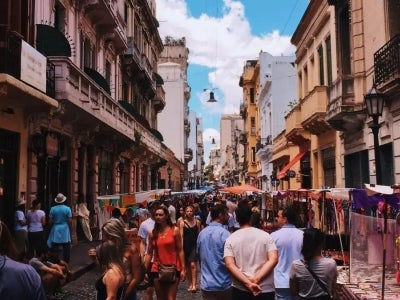
By Park Won-soon, mayor of Seoul and president of ICLEI Local Governments for Sustainability
Cities have been playing a pivotal role in global development since industrialization. They have grown intensively and become the center for politics, administration, culture and industrialization. They are truly symbols of advanced civilization, where innovation and opportunity are booming.
And they continue to grow. According to the UN-Habitat report, the global urban population is expected to reach 5 billion – or 67% of the global population – and there will be at least 40 megacities with more than 10 million residents by 2030. This sort of growth also means that cities have an important role to play in protecting our global commons including, among many other actions, reducing our contribution to global greenhouse gas emissions.
Cities need to face their rapid expansion head-on with a clear vision for low-carbon, resilient – and overall sustainable – development that protects our shared natural resources.
Seoul, like most cities, is not free from the negative impacts of urban development. We have undergone rapid urbanization and fast economic growth, which in turn has created challenges to the good care of our environment and the management of the transport sector. Acting, with the engagement of our citizens, to overcome these challenges, we realised firsthand that cities have a crucial role to play in making sustainable development possible. After all, cities are home to most people in the world.
Since I became mayor, Seoul has been taking active steps to stay on a sustainable path and fulfil our responsibility, as a megacity, towards the planet. We are implementing the Sustainable Development Goals (SDGs) based on a vision of Seoul as “the world-leading sustainable city”. I am also pushing for Seoul to lead by example, reflecting the 10 Urban Agendas of ICLEI - Local Governments for Sustainability and the SDGs in our development trajectory, so that it is environmentally, socially, culturally, and economically conscious.
We have taken a number of critical steps, in close collaboration with our residents, over the environmental dimension of sustainability. Our ‘One Less Nuclear Power Plant Project’, one of the main environmental projects in Seoul, aims to tackle climate change and strengthen energy demand management.
Residents of Seoul joined the many initiatives connected to the project helping the city to save energy and increase renewable energy production. As a result, Seoul reduced energy consumption by 3.17 million tons of oil equivalent (TOE) between the project launch in April 2012 and 2015 – equal to the annual amount of energy produced by 1.5 nuclear power plants. Seoul will continue implementing this project until 2020, aiming to save 6 million TOE of energy – equivalent to the energy generated by 3 nuclear power plants – and eventually reduce 10 million tons of greenhouse gas emissions.
Most cities face the same challenges, which makes close cooperation between them of paramount importance. As President of ICLEI, I am working to transfer these ideas around its wider network and to encourage greater ambition at the local, national and international levels.
To enhance cooperation between cities and deliver our voice clearly on the international stage, we have announced the “ICLEI Declaration to the Ministers at COP21” in Paris, which shows cities’ commitments to tackle climate change. Following this announcement, Seoul hosted the “Seoul Mayors Forum on Climate Change 2016” and, together with the participating cities, announced the “Seoul Communiqué for the New Climate Regime”, to re-emphasize that cities are committed to supporting global climate goals established in the Paris Agreement. We expect that the Seoul Communiqué will be discussed in-depth at the Habitat III conference, and that it will be shared as a message from cities and local governments at COP22, later this year in Marrakech.
Seoul and other cities in the ICLEI Network have clear reasons to build a sustainable world and protect our global commons, while working collaboratively. We can only develop sustainably and protect our common resources when cities reach across borders and aggregate even small actions into a concerted global effort.
Humankind can be sustainable only if the cities are sustainable. If the efforts of cities is encouraged and supported, development can indeed become sustainable. Together with the cities in ICLEI’s network, Seoul dreams to build a sustainable city where citizens live in a protected environment and enjoy a better life. If we dream together, cities will have the power to achieve such a dream.


